Gallantry at Halhal
[The following is chapter 20 from Saleh “Gadi” Johar’s book, “Of Kings and Bandits.” First republished on September 8, 2014 to commemorate the Battle Battle of Halhal which happened on September 6, 1968, on Dec, 17, 2020, the chapter was presented again on the authors YouTube channel in an abridged form as Negarit 112, Omer Ezaz, one of one of the best known commanders of the Eritrean struggle era fell in that battle together with around 46 of his colleagues.]
It had been almost six months since the display of Fekres’ body at Souq Berra, the open market. Ethiopian troops, who always made a show of their victories, hadn’t harvested corpses since then. They didn’t bring bodies to town for display in the marketplaces to prove their success, just like game hunters would show their trophies. Battles raged around but Janhoi’s troops failed to produce a decisive victory. As the rebels killed more collaborators and spies of Janhoi’s government, the rest went into retirement and just disappeared. But scores continued to terrorize the town. Shekay was emboldened after the failed attempt on his life by Fekres and he became more brutal.
For weeks news circulated about the siege of Halhal garrison, northwest of Keren, where the commandos troops were relentlessly bombed by the rebels and depended only on helicopters for supplies. Jemal thought of Idris, the strongman who had vanished from Keren shortly after he secured the garbage dump for him and his brother to catch birds. He had joined the rebellion and news circulated in town that he was seen around Halhal under the command of Ezaz.
People nervously followed the news of the siege. Finally, Jebha attacked the garrison and by early the next day news had spread and people became busy discussing the outcome of the battle that raged for the entire night.
That day Jemal saw the exceptionally frantic movement of army vehicles in the narrow streets of Keren: prostitutes rejoiced and drunken soldiers filled the bars and danced to the tune of loud Amharic songs. The clientele made of commandos, Tor Serawit and a few notorious spies loudly mocked the Jebha fighters who foolishly confronted the mighty Israeli trained commandos!
Janhoi’s men boasted that they eliminated the bandits at Halhal. They were intoxicated with the feeling of victory and every conversation they had was an incantation of the countless number of dead bodies they harvested. The people whispered to each other and Jemal was anxious to know what exactly happened. “We decimated the bandits at Halhal,” a commandos boasted.
Some of the bars, now hosting partying soldiers, were scenes of mourning a few days earlier. The bar served as a venue for both, celebrating victories and mourning dead soldiers: one day weeping over a dead soldier, the next celebrating the death of a Jebha combatant—the moods beholden to the mood of the clients, Janhoi’s soldiers.
Throughout the afternoon, sweaty soldiers in tattered uniforms jumped from one smoky beer house to another, which permeated the smell of cheap incense and played loud music. Burtukan’s bar was exceptionally busy; she had come a long way since the days she worked from a tiny room at the casino. Jemal remembered her wrestling Mokria who threw coins at her. Now it seemed they both had forgotten the old days. Mokria became one of the regulars at her bar and stood by the door holding a beer bottle, while Burtukan teased and danced with a few civilian customers, whose sentiments were not in tandem with the popular fire of patriotism, and who rejoiced with Janhoi’s soldiers. Jemal also saw Kidane in the street walking with another commandos soldier who didn’t participate in the Halhal battle.
The only three-wheeled taxi in town passed, stirring dust off the road, it carried a family that had just arrived to town.
Away from the main street, everything looked calm and quiet, the neem trees that adorned the streets stood almost still as if shivering from the cold breeze. Jemal squinted and looked through the dust and fog to the distance. He saw prostitutes receiving customers who had just returned from battlefronts; trucks dropped more and more soldiers in the streets. Drunken soldiers squeezed the breasts of the barwomen who pretended to disapprove of the act and feigned bashfulness by pushing the soldiers away and giggled sharply. “Are you not ashamed, street-boy!” They said it in a manner that seemed an invitation for more touching and fondling, yet pretended to cover their chests with their hands. It was a good day for business.
Drizzle fell over Keren. Gloomy clouds descended and engulfed the town blocking the sight of the mountains surrounding Keren.
IN PREPARATION FOR THE ATTACK, Jebha rebels under the command of Ezaz had been pestering the completely encircled garrison for months. Helicopters left Keren with barrels of water dangling under their belly to the besieged garrison and flew back to Keren carrying dead and wounded soldiers.
A man had come to Ezaz carrying a crumpled paper from an Eritrean commandos soldier inside the camp. The letter assured Ezaz that the Eritrean commandos were sympathetic with the rebellion and that they would join him. Ezaz was excited and sent back a message indicating his pleasure for their decision, but that he did not intend to leave the garrison alone and advised the Eritrean soldiers to abandon it immediately.
In a second message, the contact assured Ezaz that his group would join him in the attack from within once he started the assault. Ezaz may have doubted their sincerity but not enough to affect his decision to trust them.
Just before dawn, the rebels crawled closer to the walls of the garrison and took positions. Ezaz fired a shot signaling the beginning of the attack. The combatants fired a few rounds and waited behind the walls for the commandos recruits to act. Instead, the commandos lit flares over the Jebha combatants and exposed their positions. Ezaz recognized too late that the commandos had betrayed him; he gave orders to the mortar unit to bomb the garrison.
Machine gun bullets rained across the field from the watchtowers of the garrison and mowed the Jebha combatants. Mortars fired by both sides blasted everywhere. The rebels jumped from one place to another behind the wall and returned fire from their Kalashnikovs while the commandos showered them with Uzi and M16 gunfire. The rebels, trapped between the walls of the garrison and the open field now lit by non-stop flare, threw hand grenades on the trenches behind the wall and killed many. The commandos sent a volley of intense fire from over the garrison walls. Reserve rebels came under extensive fire on the open fields when they tried to carry away the wounded. The battle went on for hours.
Sensing disaster, Ezaz ordered a retreat; a few rebels provided cover as the Jebha combatants retreated under heavy fire. A bullet hit Ezaz and he fell. Two combatants braved bullets to carry their fallen commander to a safe place; he bled heavily from a serious wound that he sustained. He gave his last order: “This is not the last battle; retreat and save men and ammunition.”
Idris had raced to pull the wounded Ezaz to a safer place, and with two other rebels carried Ezaz and headed towards the clandestine rebel clinic hours away from Halhal and deep in the mountains of Debir Sala. But by midway, the brave commander bled to death and Idris and his colleagues buried him on the spot.
Word about the Halhal battle and the intended body display had first spread in the mosque during Zuhr, the noon prayer time. Soon, news spread that the venue for the day would be Gira Fiori, the town center. A light breeze carried the strong smell of DDT. Jemal had become familiar with the smell and what followed it. Like a trained dog he could follow that smell to its source, to the market squares where Janhoi’s army frequently displayed bodies of dead rebels.
By late afternoon, military trucks brought in a cargo, the bodies of forty-six rebels killed in the battle of Halhal. In a bestial act, the soldiers dropped the bodies from the trucks or pulled them like sacks by the limbs and tossed them to the ground. Then they placed them in a perfect a row, the heads laid on the curbstone where the Tessenei-heading buses had offloaded passengers a few hours earlier. People shook their heads in disgust and sadness at the way the soldiers desecrated the dead bodies. Jemal watched in shock as the cruel commandos handled the bodies in a savage manner. He was disgusted, but no one could do anything, Keren had become a town of the helpless.
Jemal inspected the mutilated bodies, some missing limbs, others with faces blown out or badly burned and charred. All looked young and had long hair; blood mixed with DDT had dried up leaving stains on their bodies. The khaki shorts and short-sleeve shirts that they wore, now soaked in blood, had either turned grayish brown or chalky grey. The commandos, the defenders of the Halhal garrison, were jubilant and boasting of their bravery.
Crowds flocked to Gira Fiori to watch, parents and relatives wearily checked to see if they could identify any of the dead combatants—almost everyone knew someone in Jebha. In anguish and sorrow, under the watchful eyes of the commandos, the congregation of traumatized parents looked for a sign, a body mark to identify a loved one. They could not; the bodies were too disfigured to be recognized.
Jemal moved from one end of the curb to the other, looking attentively at the gruesome sight of the chalky bodies, searching for some familiar faces yet praying not to find any. But he couldn’t recognize any anyway, they were unrecognizable and they could be anyone. Jemal wondered if he was not looking at his own dead, mutilated body! He wondered if all of the people around were truly alive. Maybe everyone was already dead. Maybe he was dead but thought he was watching the dead. What is the difference if any soldier could pull his trigger and waste us all at whim, Jemal thought.
He stood by a corner as many questions came to his mind: what were the combatants thinking the moment they stopped breathing? What could motivate someone to die for a cause? Is freedom worth dying for if one cannot experience it? Could it be freedom to end up dead, your body sprayed with DDT and displayed by a curb? What is the difference between being dead and being mentally dead, suffering from daily humiliations and total lack of freedom? Maybe freedom comes in two different ways: in death that shields one from agonies, suffering and humiliation, and in a rare kind of freedom—actual freedom that one experiences while still breathing. Jemal glanced at the bodies. They looked tranquil.
A few months later, Jemal discovered that Saleh, one of the people he couldn’t identify among the bodies and yet hoped not to find, had died in the battle of Halhal. He had a hunch he had missed something while watching the bodies: he didn’t remember seeing Saleh’s face among the displayed bodies though it has been there, mutilated, disfigured and unrecognizable. Saleh’s cold body could have been the faceless one, or the one with the open stomach, laying there dead, unaware that his remains were desecrated and displayed on the same streets where he grew up, where now no one recognized him. Jemal didn’t see a smiling face among the bodies; Saleh could not have died without a smile on his face; a smile that would be detected even in a face half blown away. Maybe the smudge of DDT and blood concealed his smile.
The sun was setting fast and soon it would be curfew time, six o’clock, time to go home or risk being shot. As Jemal turned to go home following the streak of sad people, he bumped into Omer who walked towards the curb where the bodies were sprawled. “You have to go home, it is getting late,” Jemal told him. Omer didn’t respond but went on and inspected the bodies from one end to the other, his clenched fist flying high in the air, his eyes almost closed as if meditating, in his own way paying his respects to the dead. The startled commandos looked at him wondering what he was doing—they could have thought he was insane.
Jemal waited for Omer to finish the ritual he had just invented and walked beside him. All the way Omer looked to the ground until Jemal reached his home and said good night. Omer didn’t say a word. Jemal remembered how they had walked silently a few years earlier when Shutuphouse made them shake hands after a fight.
When news about the commandos victory at Halhal garrison reached Asrat, Janhoi’s viceroy in Eritrea, he immediately ordered the promotion of Lieutenant Kassa the commander of the commandos unit to the rank of captain; Kassa became Shambel Kassa.
Two-days after the battle of Halhal, while Jemal was in class, automatic gunshots burst wildly. Moments later he discovered the shots were in celebration of Lieutenant Kassa’s promotion; he had fought bravely at Halhal. He slaughtered a bull in front of his house to celebrate the happy occasion and there was a big party.
Degiat had planned a more fitting celebration in his mind. He erected a large pavilion in front of the offices of the SATAEO Bus Company across from Gira Fiori; Asrat and his entourage would be sitting there. Degiat had purposely selected the spot; a spiteful choice intended to infuriate the people of Keren because the building used to be the Rabita offices, a staunch anti-Janhoi pro-independence party of the forties. Janhoi’s viceroy would give a victory speech where Ibrahim Sultan had delivered many inspiring speeches in the struggle for the emancipation of serfs, where he lectured about freedom and independence. Degiat decided the place would now host a different event, a wanton provocation that angered the townspeople.
On a Sunday morning a few days after the battle of Halhal, Asrat Kassa 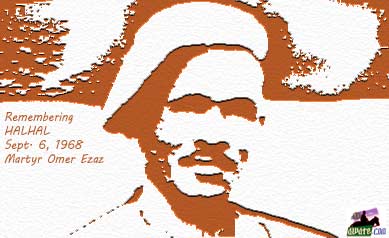 and other high-level officials of the Ethiopian government arrived for the celebration. Police and army musical bands, all dressed up in their best ceremonial uniforms, marched in front of the pavilion where Asrat and others sat enjoying what they considered the final victory against the Eritrean “bandits.” The Ethiopian troops, including the commandos, were there to flex their muscles, each individual soldier acting as if he single-handedly dealt a lethal blow to the Jebha rebellion.
and other high-level officials of the Ethiopian government arrived for the celebration. Police and army musical bands, all dressed up in their best ceremonial uniforms, marched in front of the pavilion where Asrat and others sat enjoying what they considered the final victory against the Eritrean “bandits.” The Ethiopian troops, including the commandos, were there to flex their muscles, each individual soldier acting as if he single-handedly dealt a lethal blow to the Jebha rebellion.
The victorious Captain Kassa sat there and listened as Asrat Kassa delivered a speech. “Shambel Kassa held Halhal fort and decimated the shifta, bandits. He defended mother Ethiopia and the pride of His majesty, Janhoi, and his government,” Asrat said. After the speech, the commander of the Keren garrison led the military parade followed by the commanders of different units. At the head of the Ethiopian infantry units was another Eritrean Commander, Colonel Bjju, a man known for his excessive drinking and gambling. Dozens of Jeeps, trucks and artillery-mounted vehicles moved slowly in the victory procession.
The show and the boasting of the “brave commandos,” that was supposed to intimidate the population had an opposite result. The young decided to die fighting for their freedom and be “displayed as dried meat,” instead of living without dignity under an archaic monarchy. The Halhal incident added to the resolve of the people to fight back.
It had been seven years since the armed struggle started; the rebellion spread like wild fire engulfing the whole of Eritrea; but the commandos institution, the backbone of the Ethiopian rule, stayed intact and maintained its unwavering loyalty to Janhoi. The persistent attempt by Jebha to educate the commandos didn’t pay off as fast as expected, because the victory of Halhal had reinforced the myth that surrounded the commandos, whom Janhoi’s propaganda machine described as the invincible and unbeatable Israeli-trained force. The connection was skillfully amplified and exaggerated to give the commandos institution a legendary aura. It reinforced Janhoi’s propaganda to scare the population and goad them to fight the rebellion.
Jebha skillfully downplayed the Halhal debacle, though deep inside, many people were devastated by the defeat, even if the betrayal of the commandos was an important factor. They wondered how Ezaz and his disciplined military character, a man whose caution bordered on paranoia, would be that trusting. Srnji was angry, “How could he trust the commandos who a few days earlier burned villages and killed innocent villagers around Halhal?”
What followed the defeat at Halhal were worse political setbacks. The battle, which was waged a year after Israel defeated the Arabs in the 1967 war, had serious repercussions. Soon, news of bigotry and deception that was inflicting the Jebha rebellion started to arrive to town. Some rebels could not withstand the defeats of Jebha in a few battles and became demoralized. They were terrified and thought the rebellion would be crushed anytime; they surrendered to the Ethiopian garrisons in dozens. It was an opportunity that Janhoi’s government didn’t waste; they intensified their propaganda of painting the rebellion as a Muslim affair to further alienate Christians. Almost all the surrendering combatants claimed they were persecuted by their Muslim compatriots and had to defect and ask for Janhoi’s mercy. Some began to create confusion within the ranks of the rebellion by planting seeds of division that made the future of the rebellion look very bleak.
Jebha’s crisis made reformers and spoilers face each other. A power struggle among the elite crippled the efforts of the reformers and led to almost two years of chaos. At the end, the reformers and their adversaries reached a standstill. A few ambitious combatants had adopted and repeated messages identical to the Ethiopian propaganda; leaflets that magnified Janhoi’s allegations that Jebha is a Muslim organization that oppressed Christians. Janhoi’s intelligence could not have dreamed of being that effective; the splinters achieved what Janhoi’s intelligence had failed to achieve for years. But Jebha survived the ordeal and took lessons from the Halhal debacle which became a reason for more resolve.
It took more years of relentless persuasion until the commandos started to sympathize with the rebellion. It was years after the Halhal battle that some commandos soldiers began to join the rebellion. Halhal remained a testimony to the resilience of Eritreans and the bravery of Ezaz and his combatants, who were elevated to mystical proportions.
Two points exemplified the pride of Jebha: Ezaz fell in battle fighting gallantly alongside his troops—he didn’t die in a remote banker. The combatants under his command had two choices: to try to retreat through the open field and risk annihilation or surrender and save their lives. They chose the first option and died fighting heroically instead of surrendering to the enemy—the Ethiopian forces didn’t capture a single combatant alive, not a single one surrendered!

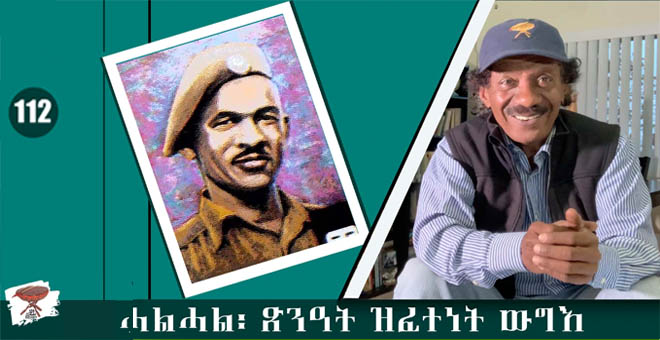
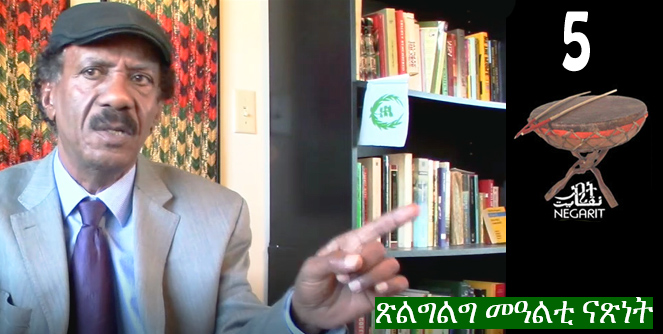
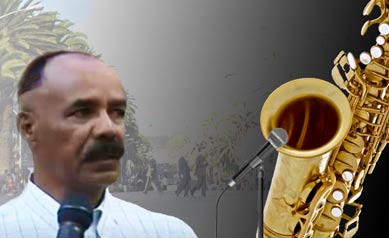
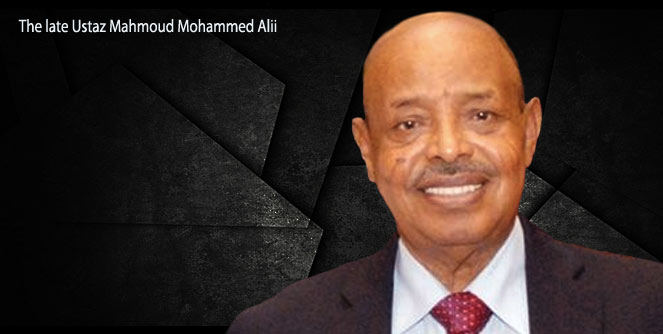
Awate Forum